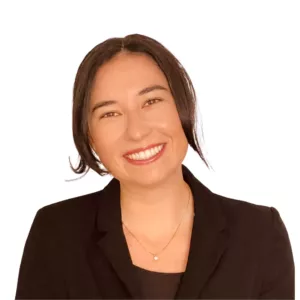Made for and by our Familia
Mi Familia es tu Familia
Latina Feminist psychology speaks to the need for women to share their tesimonios, or stories. (Comas Diaz, 2018) The theory behind sharing one’s tesimonio is that the identity of the person speaking truly matters. It always matters, but in particular it matters for the voices of those who have long been silenced. (Comas Diaz, 2018) Culturally speaking, the Latinx community primarily abides by the understanding of “no sacar los trapos al sol.” (meaning do not share your secrets in public) (Comas Diaz, 2018) To share one’s testimonio is an act of liberation; it is an act of reclaiming parts of our identity that have often been silenced in the public sphere.
Mi familia es tu familia, translated means “My family is your family.” In writing about identity and how we learn to identify the contexts that formed us, I feel it is important to share some of my tesimonio with you. Growing up in a blended family of Mexican, South American Native Indian, Italian, and German heritage meant several things, some of which I am still learning. Growing up, my family frequently welcomed family, and friends, and friends of friends to join us at the table. For my mom who was a Navy brat accustomed to the challenges of constantly moving and feeling uprooted, her joy came from feeding, housing and holding others who didn’t have a place to call home. For my dad growing up as a Latino in a multi-ethnic community during the 1960s and 70s meant that survival was always on the forefront of his mind. For my dad, friendships were forged through the fists thrown, the fights won, and the fear that fueled him to forge a new way. As an adult, my dad found solace through the indigenous practices he had heard about from his great grandfather, who we believe immigrated from Uruguay. He found respite in the rhythmic beating of the drum in the circles he participated in, the silence he sought in the mountains amidst a community of men, and the peace he sought through practices such as meditation and yoga.
My parents did not raise my sister or me in the church. Instead, they raised us to see the world and all of creation as a sacred place. They raised us to see the worth in tending to the physical and spiritual needs of our bodies individually and in community because having the space to do so was a privilege. I may not have grown up in the context of Christian Liturgy, but I grew up in the context of risky love.
At the age of 17, I longed to find a way to integrate my newfound Christian faith with the embodied spiritual practices my family instilled in me. That led me to academically pursue psychology, hispanic studies, and theology in college. That led me to embrace a faith that I can now see is fully capable of holding the complexities of my identity as a follower of Jesus, as a Latina, as a woman, as a daughter, as a friend, and now as an aspiring psychologist. My family is your family still rings true for me today. Yet, this now extends to the family of faith I now belong to.
Tu familia es mi familia
Every family has a story. Every person has a family. Yet, every family shapes us differently. Family is interpreted differently depending on what context you grew up in. For many this word can feel isolating. Consider refugees, or immigrants, or orphans. All of these labels carry with them a connotation of abandonment. This is why in talking about family we’re talking about family in terms of the communal contexts that you grew up in. This may be your biological family, it may be an adopted family, or it may be the chosen family of your adulthood. All of these matter.
Reflection
- We invite you to ask those around you to share a story with you. Consider asking them what comes to mind when they think of who you are. Listen closely and consider journaling about what this experience was like for you to hear others speak about parts of your testimonio on your behalf.
Comas-Diaz, L., & Vazquez, C.I. (Eds.). (2018). Latina Psychologists: Thriving in the Cultural Borderlands (1st ed.). Routledge. https://doi-org.fuller.idm.oclc.org/10.4324/9781315175706
Continue Exploring

Emotions
Identity: We Not Me (Part 3)
Identity is not just about acknowledging who we think we are, it is about listening to the voices within our communities–listening for the stories they are telling about who we are collectively.

Blog
Identity: We Not Me (Part 1)
What is our identity? How do we discover it? What would it look like to define our identity through the communities we participate in?

Thriving
The Divine Individuality of a Thriving Life
Our environments impact how we thrive. If our environments don’t support us, what can we do to support ourselves?

